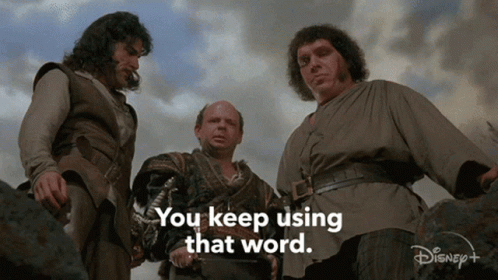There is much talk about freedom these days. Freedom of speech, freedom of trade, freedom of identity, and so on. In all those talks, freedom is dealt as an absolute. A pure thing. The ultimate goal of humanity. I don't think so. How did I get to this article? By thinking about my daughter, as for so many times these days. This is not the first draft, and it changed a lot during the writing process, so here’s the starting question: “What do I want for my child?”
The most important thing
To reflect on what I want for her, I have to start at my self. Yes, the separated self, my own self, that always gets marked as “error” in MS Word. What is most important for me? Being happy. Not what Hermann Hesse calls “unproductive happiness” in one of my favorite works of his, “The Steppenwolf”, the dull and empty happiness due to the absence of negative emotions, a happiness similar to the one in “Brave New World”, imposed by several drugs (
mind reading one of Taraz’ latest pieces) like alcohol, cocaine, sex and others. Hesse’s protagonist preferred the “productive unhappiness”, a state of channeling those negative emotions into creation (but with the risk of suicide, which is how his journey begins) – he finds more satisfaction in that (remember the Rolling Stones?). As this book influenced me a lot, in the course of time, I concluded that being happy means to me to find satisfaction even in sadness, even in pain, even in all that is perceived as negative.
How to be happy?
Now, this is a big question. There are many variables to find happiness. For me, the most important one was to be free. I was privileged and fortunate enough to be raised in a middle-class family in Germany, receive a great education, a powerful passport, a strong base of values formed into a straight moral compass and probably other important benefits that culminate into one thing: Freedom.
What is Freedom?
I hear people talking and read them writing about freedom a lot. Mostly, they either mean "liberty", or a romantic dream of being able to do whatever they want, without having to care about the consequences. But that’s being an animal, driven by egoistical instincts, and that is not being free at all. I want to argue that it’s indeed the contrary. The animalistic freedom is not only driven, but controlled by instincts. What we humans can do to a certain degree is control our instincts a lot more than animals in order to be responsible for ourselves and others, to consider other beings as beings. For me, that consideration is the bedrock of society. And in that ability to make considerate decisions and take responsibility for them lies the freedom.
True Freedom is only possible with true responsibility
In the moment of taking responsibility for one’s actions, we actually become free. Only then do we own our decisions. We cut ourselves loose from the dependence of something or someone else to blame – it’s us, one hundred percent. Influences? Cascades of effects? Yes, of course. But that decision was us, it came from our essence after considering influences, effects, and so on. We were free to take that decision, and we own it.
Taking responsibility for our selves is also a step away from our Ego. It’s hard to admit responsibility when something went wrong, and it’s so much more comfortable when there’s something or someone to blame, even though it was us making that decision. The thing is that deep inside we know that. We know it is wrong. We know that we’re wrong, and that is a sting that sticks in our subconsciousness and prevents us from being happy.
And that is why I think freedom is so important for happiness. Owning our selves, owning our decisions, good or bad, reduces the influence of our ego aka instincts, allowing us to be more coherent with our values and hence happier.
Being free in autocratic societies, being un-free in anarchy
Reading through todays headlines there’s a lot of words flying around, usually already striped of their original meaning, so over-used without any understanding of what they actually mean that they have sadly become meaningless. Fascism, 1984, oligarchy, dictators, surveillance state, Nazi, Hitler – that’s just 2min scrolling down a social platform. All those are related to freedom. Again, most people have that idealized version of animalistic freedom in their mind. Or just something “It doesn’t matter what, but not THAT!”
Following my line of argumentation, I came to a hypothesis: For freedom, there is no difference between living in a society that enforces strict rules (for example a cult-like religion, or an authoritarian state) or living in a society that does not have any rules at all. *1
Even in an authoritarian society, one is able to make decisions and to own them. The consequences of claiming freedom that does not align with the rules are what is to fear. In the same way, even in a society without any rules one can be un-free, by not taking any responsibility nor making decisions, but just drift with the flow in a passive life.
As a non-native English speaker, the difference between freedom and liberty is interesting. They’re absolutely not the same. When people say, “Freedom of Speech”, they actually mean “Liberty of Speech”. There is also the same connection between "Freedom" and "being able to", and "Liberty" and "being allowed to." I hope I got that right, feel free to hold be responsible if I'm wrong.
… and it all comes back to Stoicism.
We can always be free. In any society, in any state, in any circumstances, because that freedom is in ourselves.
Freedom can’t be taken away, not even in 1984 – the thoughts can be read, they can be manipulated, but they can’t be taken away. The thought police does not control Winston’s thoughts in the way that they decide what he thinks, they try to manipulate them. If they could decide what he thinks, their existence would have no justification anymore. Winston is still an individual. That’s what Decartes meant with “I think, therefor I am.” Just the act of thinking is proof of the existence of "me" as individual, proof of the possibility of freedom.
Questions for you:
What is the most important thing for you to be happy?
What does freedom mean to you?
Do you think that you are free?
Are you aware of your responsibilities and dare you able accept them?
Have you caught yourself blaming others/things for your own decisions?
*2 Favorite German Joke: How many Germans does it take to change a lightbulb? Only one, they’re very efficient and don’t have a sense of humor.

